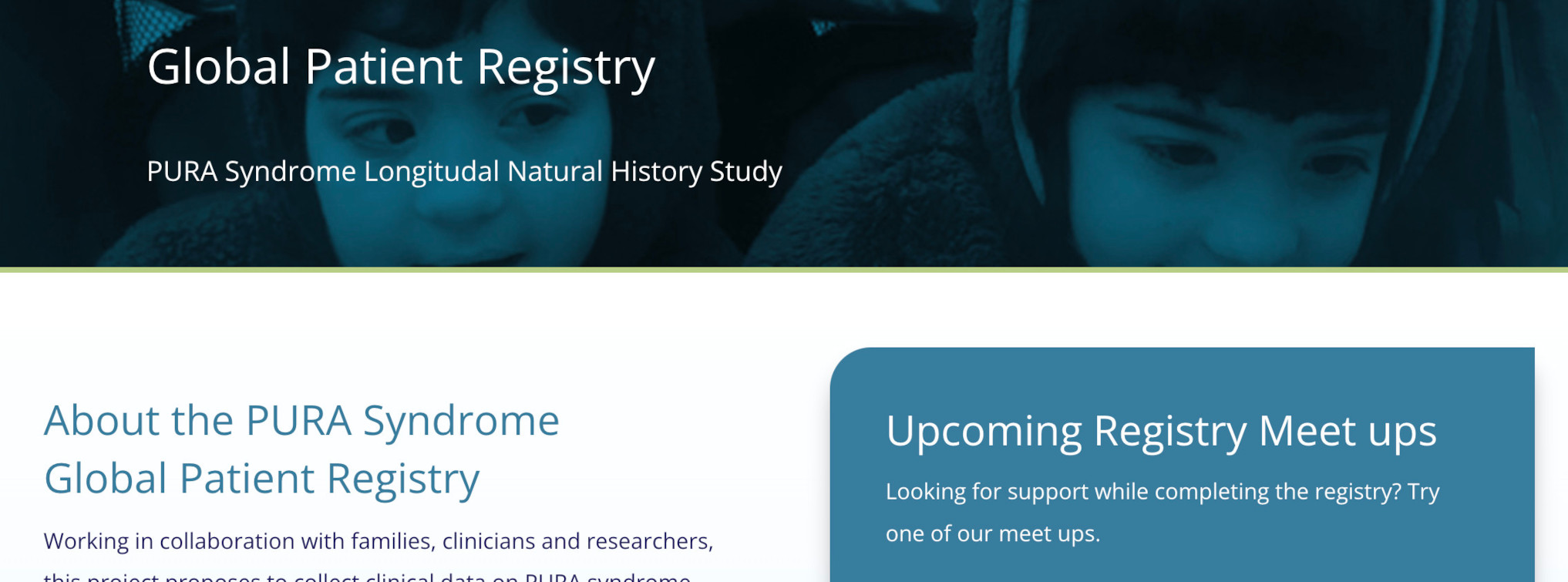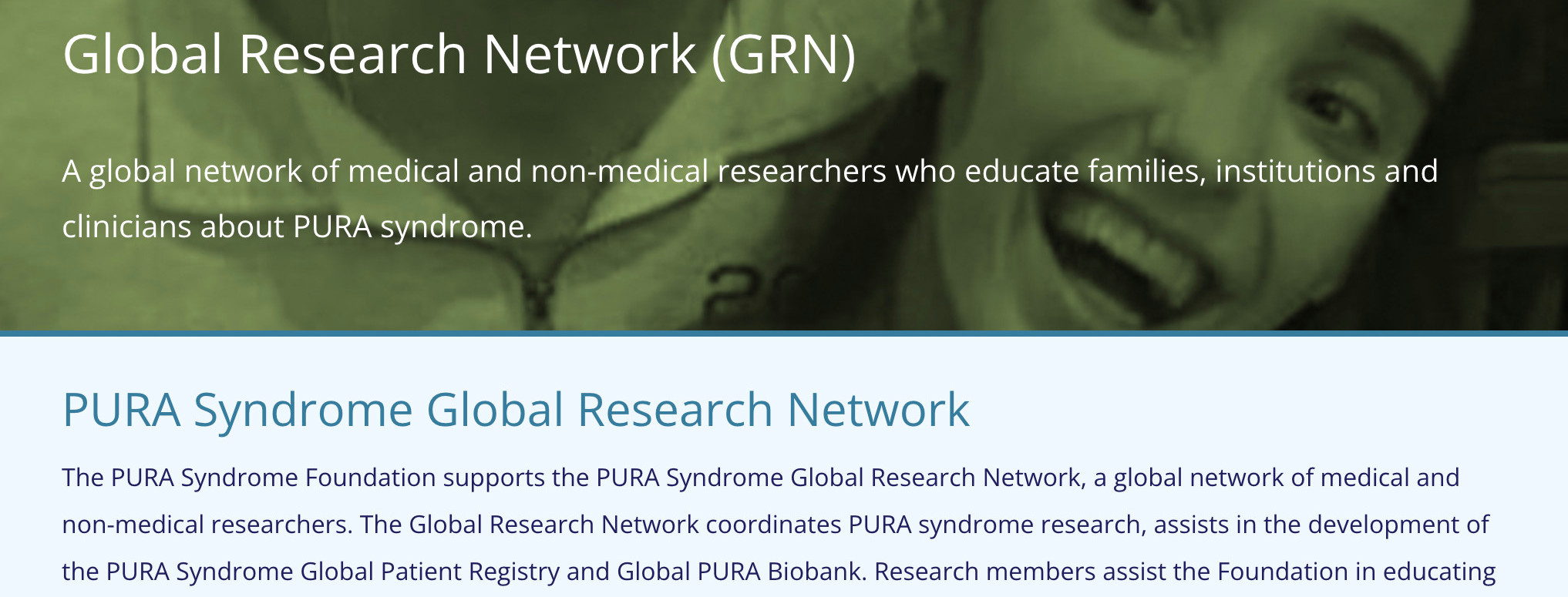Published Research
There has been an abundance of research done since PURA Syndrome was first discovered in 2014. In order to provide a complete, up-to-date list of all peer-reviewed publications on PURA Syndrome, please click the following link to perform a PUBMED database search. Below you will find a few key publications, including the two studies that reported the first cases with PURA Syndrome.
For a General Overview of our Knowledge of the PURA Gene, its Function and the Associated Pathologies:
- Molitor et al 2021– The Molecular Function of PURA and Its Implications in Neurological Diseases.
This overview article summarizes what we know about PURA, from the discovery of the gene and its protein product over 30 years ago, insights from animal and cell culture models to the main clinical features reported for PURA Syndrome.
Anaesthesia Recommendations for Patients with PURA Syndrome (October 2019)
Two studies reporting the first cases with PURA Syndrome:
- Hunt et al 2014 – Whole exome sequencing in family trios reveals de novo mutations in PURA as a cause of severe neurodevelopmental delay and learning disability.
- Lalani et al 2014 – Mutations in PURA cause profound neonatal hypotonia, seizures, and encephalopathy in 5q31.3 microdeletion syndrome.
Gene Review – for clinicians:
PURA-Related Neurodevelopmental Disorders
Members of the PURA Syndrome Global Research Network, along with supporting global clinicians wrote a medical care document for doctors, known as a Gene Review.
PURA-Related Neurodevelopmental Disorders includes the following conditions:
We have provided links on this page to selected websites which we feel may be of interest to the PURA community. Please note that once you use one of these links to leave our website, we do not have any control over any other website you visit. Please refer to the privacy policy of that website and/or terms and conditions of use before providing any personal information as we are not responsible for the protection or privacy of any information you provide to a third party.
Our Avenues of Research
Biobank
Collecting samples from PURA syndrome patients to be used for research with the long-term goal to understand and develop treatment strategies.
Global Patient Registry
Collecting clinical data on PURA syndrome from affected patients in order to enable researchers to define the full spectrum of the disorder.
Global Research Network
A global network of medical and non-medical researchers who educate families, institutions and clinicians about PURA syndrome.



